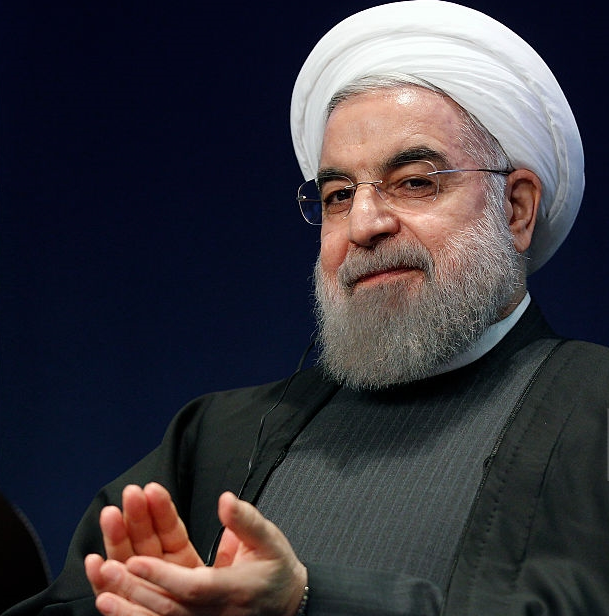
The Parameters for a Joint Comprehensive Plan of Action regarding the Islamic Republic of Iran’s Nuclear Programme is a very detailed document that is being posited as the framework within which subsequent negotiations towards a full and final resolution of Iran’s nuclear file will be navigated. Interestingly, this ‘fact-sheet’ has been released by the White House, and the contents therefore cannot be assumed to also be reflective of the Iranian understanding of what transpired in Lausanne. The rigour with which the fact-sheet appears to have been drafted, especially regarding the sections on Iran’s responsibities, and the scant attention paid to the quid-pro-quo sanctions relief, suggests that it is as much a (perhaps one-sided) statement of the Lausanne discussions as it is an exercise in confidence-building, aimed at inspiring domestic support towards an eventual JCPOA.
Both the fact-sheet and President Obama’s statement on April 2 refer to the “nothing is agreed until everything is agreed” principle, which provides a nice segue into a discussion on the section in the fact-sheet on the “Possible Military Dimensions” (PMD) of Iran’s nuclear programme. PMD here refers to past clandestine nuclear weapons-related activity in Iran, allegations of which were detailed in an annex to a 2011 IAEA report to the Board of Governors. Admittedly, there are many issues that are equally, if not more, relevant when talking about potential sticking points between the P5+1 and Iran, but it is the PMD issue that I find most intriguing.
Regarding PMD, the fact-sheet reads: “Iran will implement an agreed set of measures to address the IAEA’s concerns…” Quite apart from the lack of specificity about these measures, which would no doubt be discussed at a later date, the statement should also not be taken as definitive proof of Iranian acquiescence to whatever said measures could be. The claims of PMD have in fact been repeatedly refuted by Iran, and there is discord even in the manner of reference – Iran prefers to call these outstanding concerns with the IAEA “past and present issues” (PPI), which is how it was phrased in the November 2013 Joint Plan of Action (JPOA).
On this issue, I will admit I have more questions than answers, and would be grateful for some clarification/a discussion.
- Will Iran be amenable, as per the provisions of the fact-sheet, to discussing at length with the IAEA its possible culpability for past nuclear weapons-related activity, especially given its fatwa against nuclear weapons?
- Members of the U.S. Congress who are opposed to the deal insist on making a comprehensive agreement contingent on a full clearance of the PMD issue. In We Don’t Want to See Iran’s Full Monty, Jeffrey Lewis argues that Iran “very likely” conducted some covert nuclear weapons-related work in the past. If the details of these activities are revealed and corroborated, it could be very difficult for the United States to sell the merits of a JCPOA to an intransigent domestic political audience, as proof of past transgressions can, as Lewis puts it, turn “public sentiment…against any deal very quickly.” Jofi Joseph writes, “If, after the fact, we learn that Iran failed to disclose an academic study conducted fifteen years ago that could theoretically provide support to a weaponization program, we shouldn’t immediately declare that an Iranian violation. Context matters here.” A very pragmatic proposal, but can Congress be expected to be similarly pragmatic?
- If the talks are expedited, and the PMD is hastily ‘resolved,’ what will be the trade-off between political negotiations and any meaningful technical verification?
- How important is a conclusive evaluation of possible past nuclear weapons activity for the future verification of Iran’s nuclear programme by the IAEA?
- According to SIPRI’s Tariq Rauf and Robert Kelley, “The issue of discovering possible weapons activities is much more difficult to resolve than the normal safeguards issues…” In this light, can the PMD charge be indubitably proven or disproven? Is the kind of exhaustive verification that this could entail even anticipated? And, in such an event, what becomes of the JCPOA?
- With the goal of reaching a successful agreement in mind, could one entertain the possibility of letting Iran off the hook for ‘slight’ transgressions in the past, if stringent future verification is ensured to the satisfaction of all audiences – both domestic and international?
In his April 2 statement, President Obama said, “…this deal is not based on trust, it’s based on unprecedented verification.” Where, in this picture, could a less than scrupulous inquiry into Iran’s nuclear past fit?
***